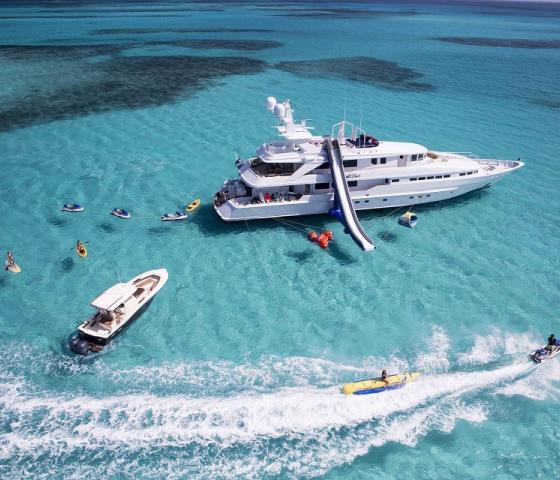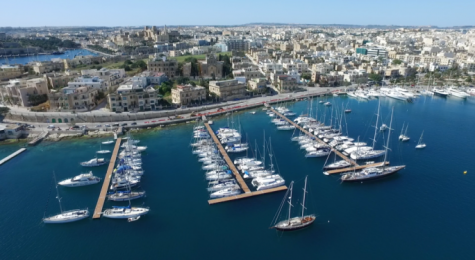Latest developments in Greek Yachting – Chartering Commercial yachts

On December 2017, the Greek Ministry of Marine has filed in the Greek Parliament a new bill, by which several changes in the operation/chartering of the commercial yachts (either under Greek, EU and non-EU flag) have been introduced. Such changes have been validated by the Greek Parliament with the enactment of L. 4504/2017.
The main changes introduced are briefly the following:
- It is now mandatory for a commercial vessel (either registered in a Greek registry, an EU Registry or in a non-EU Registry but exclusively measuring over 35 m. of LoA, mainly built by GRP or steel and with passenger capacity over 12 guests) to obtain a charter license, issued by the Greek Ministry of Marine, in order to start or end a charter in Greece. The previous provision of the law by which, a commercial vessel was entitled, either to start or end (but not start and end) a charter in Greece without having a charter license is abolished. Should a commercial vessel not acquire a charter license, she will have to start and end the charter out of Greece, while during navigation in Greek Waters she will be considered and treated as a pleasure yacht, being obliged to obtain either a DEKPA (EU Transit Log form) from the Port Authorities (for vessels flying an EU flag) or a Transit Log from the Custom Authorities (for vessels flying a non-EU flag).
It is also to note that, an owner of a commercial vessel will still have to establish a branch office in Greece, acquire a Greek Tax No. and initiate business in Greece in order to be eligible for the issuance of a Greek charter license. A Certificate of General Inspection will have to be issued for these vessels by an authorized Register (Lloyds, RINA, ABS, BV etc) established in Greece, if the Greek Authorities consider that the current statutory certificates of the vessel are not adequate. Said vessels will also have to comply with the provisions of L. 4256/2014, regarding the performance of minimum number charter days (105 charter days/3 years for vessels up to 24 m. LoA without registered crew, 75 charter days/3 years for vessels over 24 m.). Applicable VAT is calculated on the charter fee and has to be duly paid to the Greek State by the branch office.
A Crew Log must also be opened with the Greek Port Authorities, for vessels over 24 m. LoA and Social Security Contributions will have to be paid to the Greek Social Security Fund for Sailors (NAT) for the crew members. Tax free bunkering (only during the performance of a charter - empty runs excluded) and VAT exemption on supplies and services relating to the maintenance and security of the vessel, is provided to commercial vessels having a valid Greek charter license. The owner of the vessel is free to use her, without producing a charter party, as “own use”. However ,no tax-free bunkering is allowed in such case.
- The exemption of commercial vessels having their VAT paid, from the performance of minimum number of charter days is also abolished.
- The embarkation/disembarkation of guests during the charter is restricted. The owner and charterer will have to mention in advance, in the charter agreement the specific persons who shall embark/disembark the vessel, the relevant time as well as the harbor/port in which the relevant embarkation/disembarkation will take place. If this will be decided after the signing of the charter agreement, a relevant amendment of the charter agreement will have to be signed and filed to the Port Authorities. Every charter agreement must be filed and certified by the competent Port Authority. Every commercial vessel must also receive a permission to sail from the competent Port Authority of the harbor, where the vessel initiates its journey (while there is still no need of going to the Port Authorities of the intermediate stops). Passenger and Crew List must be kept on board by the Master of the vessel and certified by the Port Authority, where the vessel initiates her journey. Should the Passenger List be changed, the Master has to amend such list and file it to the competent Port Authority, if this change is not provided within the charter agreement (in which case an amendment of the charter agreement itself must be filed as well). The change of the entire Passenger List (meaning that all the passengers disembark and new passengers embark the vessel) is prohibited and if it effected, it will result to the cancellation of the charter. The above provisions do not concern passengers leaving the vessel temporarily e.g. in order to have a lunch, dinner or go to the beach.
- The minimum duration of each charter cannot be less than 12 hours.
- Any Chartering of pleasure yachts is strictly prohibited as well as relevant advertising of such activity.
Furthermore, VAT exemption on the acquisition of vessels with LoA up to 12 m. is now abolished.
VAT exemption on the acquisition of a vessel is provided only for a vessel to be used as commercial, having an LoA over 12 m., being built for use in “High Seas” and being activated mainly in “High Seas”, the definition of which, is not yet defined nor introduced in the Greek Law.
Last development: the Greek Ministry of Marine has recently proposed the abolition of the prerequisite of passenger restriction to be over 12 guests, for commercial vessels registered in a non-EU Registry, in order to be eligible for the acquirement of a Greek charter license. This ruling yet remains to be enacted.






